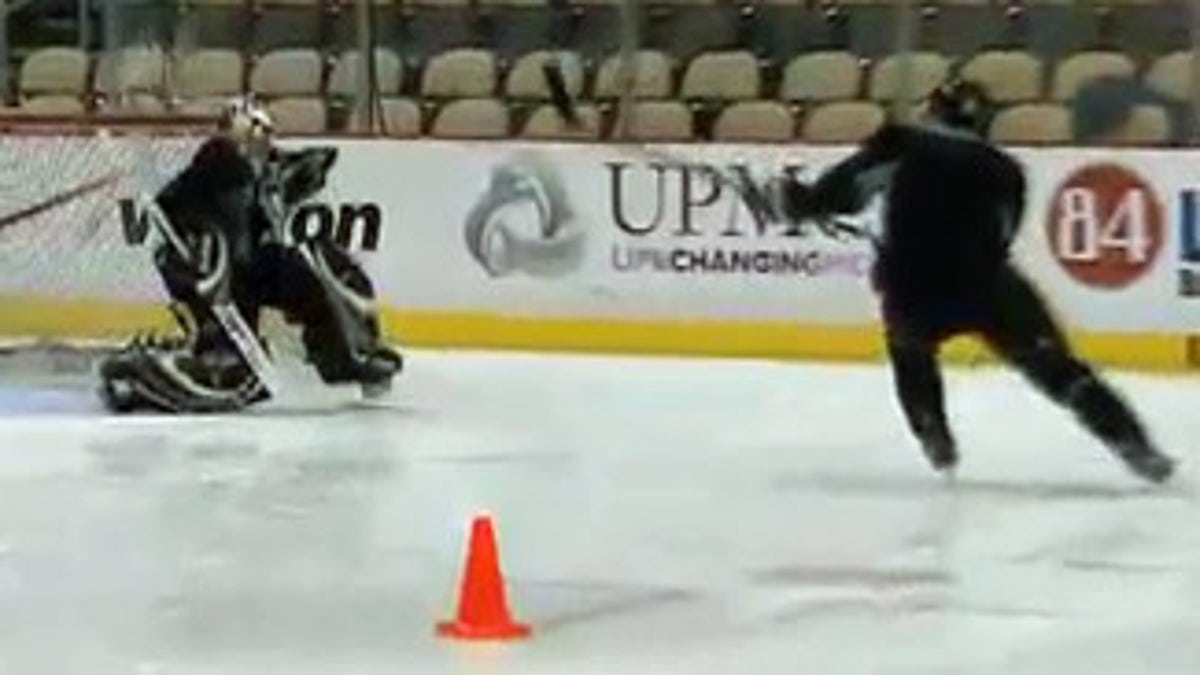
PITTSBURGH -- In a move to help better diagnose concussions, the Pittsburgh Penguins are initiating a program that will offer free baseline testing for youth hockey players in their region.
The team's charity, the Pittsburgh Penguins Foundation, will team with UPMC Sports Medicine's nationally-known program for detecting, treating and reducing concussions to test at least 6,000 amateur players. The tests take about a half-hour and normally cost $25 to $40 each.
"It's the same, exact test that the NHL players get," Penguins CEO and president David Morehouse said.
The tests, which are taken at a computer, measure a player's cognitive and memory skills -- such as brain processing speed and reaction time -- before he or she has sustained any head injuries. If a player becomes concussed, the tests are performed again and compared to the earlier tests to determine when the player has returned to normal. Numerous college and pro teams in multiple sports rely on the test.
The Penguins-led program will focus on the pee wee, bantam, midget and high school levels of amateur hockey because these players are involved in body checking. Youth players affiliated with the Pennsylvania Interscholastic Hockey League, the Pittsburgh Amateur Hockey League and USA Hockey will be offered the free tests.
The PIHL is hopeful of making the tests mandatory statewide by next season. The testing will be conducted starting May 1.
The Penguins have become especially proactive in trying to reduce head injuries since captain Sidney Crosby developed a concussion following hard hits in successive games Jan. 1 and 5. Crosby, the NHL's leading scorer at the time he was injured, has resumed skating and is practicing with the Penguins in non-contact situations, but has yet to resume playing.
Last month, the team was among the contingent urging the NHL's general managers to eliminate head shots from the sport.
On March 20, forward Matt Cooke was ejected March 20 for elbowing Rangers defenseman Ryan McDonagh in the head and was suspended for the rest of the regular season and the first round of the Stanley Cup Playoffs. The Penguins publicly supported the League's decision as part of its commitment to remove dangerous head-hitting from the game.
"The suspension is warranted because that's exactly the kind of hit we're trying to get out of the game," general manager Ray Shero said in a statement. "Head shots have no place in the game. … Head shots must be dealt with severely, and the Pittsburgh Penguins support the NHL in sending this very strong message."
Shero is dealing with the concussion issue not only professionally, but as a parent. His son, Chris, a hockey player at Upper St. Clair High School in suburban Pittsburgh, is recovering from a concussion.
The Sheros did not initially know that Chris was concussed, but discovered it only after his grades began to drop in one of his best subjects.
Crosby's sister, Taylor, a high school freshman who plays goalie at Shattuck-St. Mary's Prep in Minnesota, also is recovering from a concussion.
Penguins coach Dan Bylsma has a special interest in the new program because his son, Bryan, plays youth hockey and has yet to undergo the tests.
"It's an attempt to aid a large number of kids throughout the Pittsburgh area, so they can take that step to get the baseline and to be tested," Bylsma said. "So that when my son and your son and everyone's kids happen to have this happen to them, we have a baseline so we know how to deal with this and we're more aware of the situation."
The Center for Disease Control and the Community College of Allegheny County also are playing roles in the program, as the tests will be performed at each of CCAC's five Pittsburgh-area campuses. They will be offered initially at the UPMC Sports Medicine Center in Pittsburgh.
